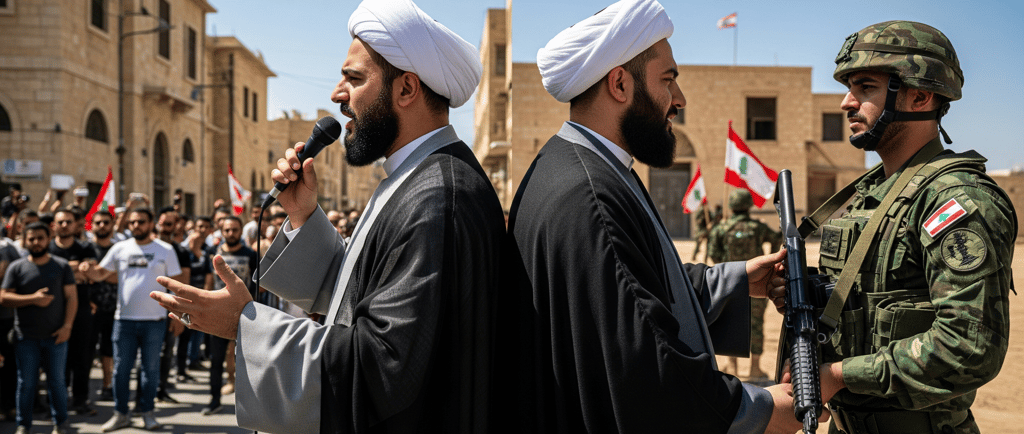The patient is dead: When will Hezbollah announce it?
This article discusses the end of the war between Lebanon and Israel in November 2024 and analyzes its repercussions on Hezbollah — from military and political collapse to the erosion of the legitimacy of the “resistance.” It also explores the party’s dilemma between keeping its weapons or integrating into the state, and the implications for Lebanon’s future.
Bilal Nour Al Deen
7/5/20252 min read


The war between Lebanon and Israel, which Hezbollah initiated as a support front for Gaza, ended on November 27, 2024, with a harsh defeat. What began as a calculated attempt turned into a costly conflict that further weakened Lebanon and left Hezbollah in a politically and militarily fragile position.
From Gamble to Collapse
For years, Hezbollah operated under the logic of “strategic immunity.” It possessed its own weapons, acted freely without accountability, and claimed for years that it could deter any Israeli attack. This is where the complexity arises for Hezbollah. Its identity, political capital, and popular base have all been built around the idea of “resistance” and the monopoly of arms to defend Lebanon. However, what happened in 2024 undermined this narrative. Now, this model has collapsed. The recent war devastated southern Lebanon and exposed serious weaknesses in the party’s military structure. Israel’s intelligence superiority, precision strikes, and systematic targeting of Hezbollah’s infrastructure have all damaged its credibility.
But beyond the physical destruction, the war inflicted significant political losses. The humiliating ceasefire agreement came burdened with international conditions and local pressures demanding that the official authorities reassert state control over all territories and disband armed factions—chief among them Hezbollah—as a fundamental step toward receiving financial aid or reconstruction.
Resistance Losing Steam
So far, Hezbollah’s leadership has not shown readiness for reassessment. The rhetoric remains committed to resistance and arms as a red line. Yet this discourse is losing momentum. Continuing on the same path is very costly—not only for Lebanon but for Hezbollah itself, which today faces two difficult choices: either to keep its weapons with all the ensuing consequences or to embark on a genuine transitional phase, repositioning itself as a political force within the state system rather than above it. The party’s decision concerns not only its own future but Lebanon’s as a whole. Lebanon cannot recover while the south remains occupied, nor can Beirut attract investments while the war continues indirectly.
Disarming the Myth
Nonetheless, it seems Hezbollah’s leadership has come to realize the reality of the situation and that the ceasefire agreement reflects the facts on the ground. On this basis, the weapons will be handed over sooner or later. However, Secretary-General Sheikh Naim Qassem and his close circle maintain two narratives: an emotional discourse directed at the public and a rational discourse conveyed behind closed political doors. This duality exists because the party did not expect Lebanon to demand the disarmament so quickly. What was built since 1982 cannot be handed over in less than 82 days. This shatters Hezbollah’s image before its supporters. Former Secretary-General Hassan Nasrallah once said, “We are a people who will not leave the shore and will not relinquish arms.” But it seems this rhetoric passed with his departure from this world. In other words, the party understands that disarmament is inevitable, but its leaders are asking themselves: how do we prepare the public for this step? The answer may be: first, we say we will not disarm; later, we say we have disarmed but will not normalize; and at the end of the day, we say despite Lebanon’s normalization, we will liberate Jerusalem one day, for this is God’s promise.
The party once threatened to ignite the Middle East but has extinguished itself internally. Today, it is paying the price.
Contact me via email
SUBSCRIBE TO MY NEWSLETTER
hello@bilalnouraldeen.com
© 2025. All rights reserved.